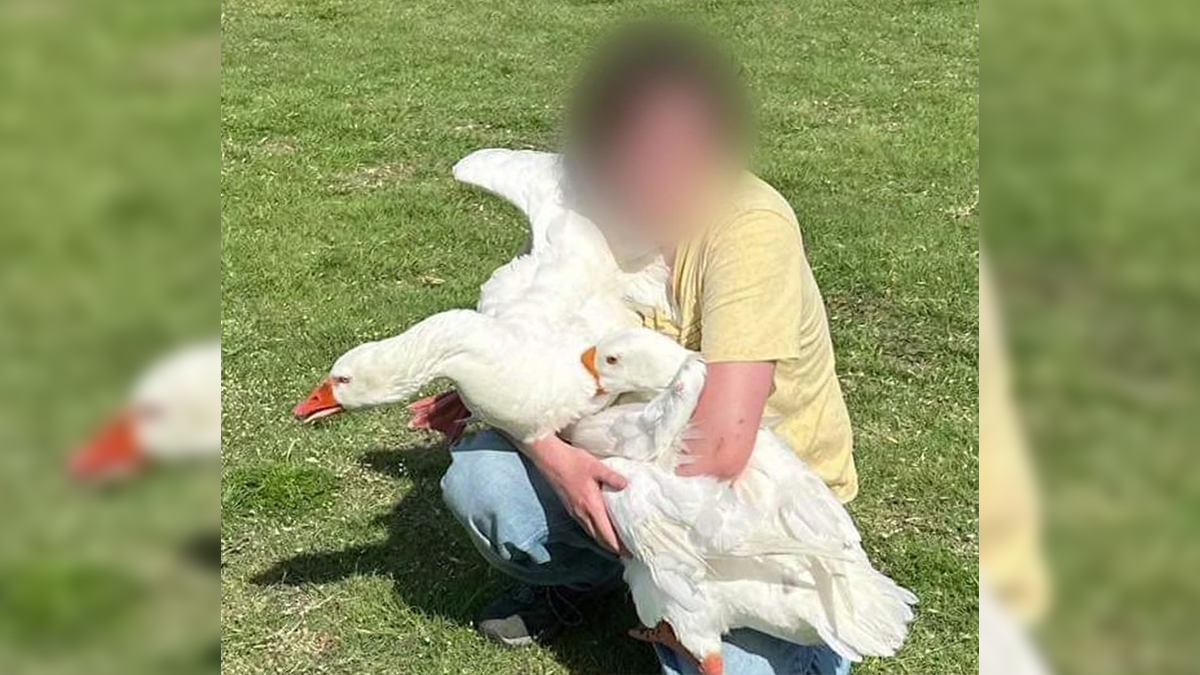In 1964, a year after John F. Kennedy’s assassination, a federal panel concluded that he was killed by a 24-year-old former Marine and Communist sympathizer who’d acted alone.
That Warren Commission verdict, made under extreme political pressure, is largely viewed as inadequate, and triggered a torrent of alternative theories that tried to explain the most notorious murder in American history.
Five decades later, the country is hardly closer to knowing the full story. And it may never will.
Conspiracy Theories: Most Popular, Most Obscure
Most Americans still believe that Lee Harvey Oswald had accomplices. So do many scholars, journalists and investigators. But if Oswald indeed had help — as the U.S. House Select Committee on Assassinations concluded in 1979 — then solving the crime requires unraveling a long and tangled list of potential accomplices, and accessing thousands of still-classified documents.
The most widely discussed conspiracy theories involve the CIA, the military, organized crime, the Soviet Union, Cuba, Cuban exiles, right-wing extremists, then-Vice President Lyndon B. Johnson, or some combination of them. Among the wilder assertions are that Oswald wasn’t the shooter — and that it was a Dallas police officer, or a Secret Service agent.
“The case will be open, in my opinion, forever,” said Tom Stone, a lecturer at Southern Methodist University in Dallas who teaches the assassination as a lens into American life. “The controversies will go on because at this late date, there’s no way to resolve them all.”
Local
The latest news from around North Texas.
Instead, the case has become a “Rashomon”-like search for truth that reveals less about the killer and his motives than it does about the public’s attitude toward government, power and national security.
The roots of conspiracy theory
Conspiracy theories, scholars say, are the manifestation of a basic need to give meaning to events that don’t seem to make sense — like a president gunned down by a directionless young man, who was in turn shot dead in police custody.
“Conspiracy theories happen…when our human capacity for fear or being afraid meets our natural human capacity for needing narratives,” said Jesse Walker, author of a forthcoming book “United States of Paranoia: A Conspiracy Theory.”
That doesn't necessarily mean such theories are inaccurate.
"Sometimes," Walker pointed out, "people actually conspire.”
A particularly American strain of conspiracy theories can be traced to the country’s anti-colonial beginnings, and its long tradition of populism, which pits the common man against those calling the shots.
“We are deeply distrustful of any concentration of power,” said University of Florida law professor Mark Fenster, author of “Conspiracy Theories: Secrecy and Power in American Culture.” “Any sort of concentration of power, public or private, is what conspiracy theories take to, to a certain degree.”
The political environment can aggravate those fears. Kennedy’s assassination came during an escalation of the Cold War, when the country was fixated on the threat of Communism and nuclear conflagration. News of Oswald’s brief defection to the Soviet Union a few years earlier, and his support of Cuban dictator Fidel Castro, triggered speculation of a foreign plots. Others raised the possibility of a scheme involving U.S. intelligence agencies, or the criminal underworld.
Rising distrust
The Warren Commission, assembled by the new president, Lyndon B. Johnson, to help calm a jittery public, dismissed all conspiracy theories and placed the blame solely on Oswald. Many considered the commission's final report the definitive account of the crime.
But researchers began combing through the backup documents and found reason to believe that the panel had overlooked evidence that ran contrary to its findings.
Then came the Vietnam War. Then Watergate. Then a Senate committee that exposed U.S. intelligence agencies’ role in spying on Americans (including assassinated civil rights leader Dr. Martin Luther King Jr.), experiments in drug-induced mind-control and foreign assassinations (including a CIA plot to solicit the mafia to kill Castro).
Those revelations opened a new era of cynicism — and breathed new life into the conspiracy theories.
“People said, ‘If the government tested drugs on people, and spied on King, and Kennedy was trying to kill Castro, then who knows what other things we think are crazy are in fact true,’” said Kathryn Olmsted, a history professor at the University of California at Davis who wrote a book titled “Real Enemies: Conspiracy Theories and American Democracy, World War 1 to 9/11.”
In the late 1970s, Congress essentially reopened the case on Kennedy’s killing. It formed the Select Committee on Assassinations, which met in private and issued a report that in some respects contradicted the Warren Commission. The new panel found a “high probability” that more than one gunman had shot the president, and that Kennedy was “probably assassinated as the result of a conspiracy.”
The committee ruled out involvement by the Soviet Union, Cuba, the FBI, the CIA, anti-Castro dissidents and the mob, although it did not dismiss the possibility of scheming by individual members of those last two groups.
New questions
In 1991, Oliver Stone released “JFK,” a film built around many of the conspiracy theories. Historians said it fabricated various aspects of the assassination. But it made millions at the box office and won rave reviews. It also sparked another wave of interest in the crime, and led to the creation of the Assassinations Records Review Board, which set out to release all documents related to Kennedy’s death. That promise is still years from being fulfilled.
In a column in USA Today published on the eve of the 50th anniversary of Kennedy's death, Stone accused the mainstream media of being dangerously out of step with the majority of Americans who doubt that Oswald acted alone.
"Although polls from 1964 on clearly signal the public's distrust of the official story, the mainstream media have never given up telling us how superstitious or illogical the common people are in this believe," Stone wrote.
Jefferson Morley agrees. He's a former Washington Post reporter who a decade ago uncovered proof of the CIA’s link to an anti-Castro group that had run-ins with Oswald — information that had been kept from prior investigations. Morley is still fighting for access to thousands of documents on the assassination that the government has kept secret.
A year ago, Morley created a website, JFKfacts.org, devoted to collecting information about the case, and answering questions about the various conspiracy theories. His goal, he said, was to correct an imbalance that has skewed reporting on it: most Americans believe that Lee Harvey Oswald did not act alone, but most media assume they're wrong.
"I call it denial," Morley said. "I understand why (traditional media outlets) don't want to go there. But the country does." He cited as evidence the 10,000 people who visited his site daily in the run-up to the 50th anniversary.
"When Kennedy was killed and Lee Harvey Oswald was arrested, the national security agencies had a huge problem, and they buried it," Morley said. "What we're looking at now is the result of that story being buried."
In the years since the release of "JFK," Morley and others have revealed that a CIA agent who acted as the anti-Castro group's handler had been brought out of retirement to process — or, suppress — inquiries from the assassinations committee's investigators. Those facts didn’t implicate the CIA in Kennedy’s death, but raised serious questions about what it was trying to hide.
“In essence, the CIA corrupted the investigation,” said James Lesar, a lawyer who heads the Assassination Archives and Research Center, which maintains a library of documents pertaining to the Kennedy shooting and lobbies for the release of papers still under seal.
Lesar sees a correlation between the Kennedy case and current disillusionment with government.
“The news media constantly says, rightly, that American people just don’t trust their political leaders anymore. Well, you’re not going to get that trust until you deal with the Kennedy assassination,” Lesar said. “If you can’t face that issue, if that’s too frightening for you to deal with, then you’re never going to get that trust.”
Persistent doubt
G. Robert Blakey, who served as lead lawyer on the House assassinations panel and wrote a book about it, said he is no longer confident that it is possible to unravel the entire story.
He suspects there was a second shooter, and that certain mob figures played a part. But Blakey also acknowledges that reasonable people could look at the same evidence and decide he is wrong.
“If you want to say (it’s true) beyond a reasonable doubt, then never mind,” Blakey said.
Lesar, however, insists that the truth is out there, and hopes that the 50th anniversary of the killing spurs more exploration.
That has already begun. Dozens of books — new and republished — advancing conspiracy theories were rushed to stores in time for the Nov. 22 anniversary.
Tom Stone, the SMU lecturer, said that, in the absence of answers, it's important to look at the assassination's impact on American life: leading the country into a long, tumultuous period of soul-searching that continues today.
“All of a sudden, conspiracy theories about the Kennedy assassination became part of this eye-opening experience about blind faith in the government — ‘This is what they do when we don’t vigilantly question them,’” Stone said. “Then the mistrust went too far, and the pendulum swings. Blind trust turned into blind mistrust, which is almost as bad.”
From there, it’s not difficult to draw comparisons between the Cold War and the “war on terror,” with its battles over freedom, privacy and security — debates that are still being waged across America.
That’s what makes the mysteries of the Kennedy assassination so relevant, so compelling, even after 50 years.



